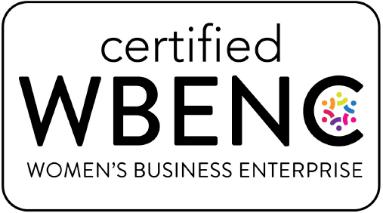Authored by:

Justin R. Muehlmeyer
Patent Attorney
All Posts by Justin
One of the main reasons that patent applications are rejected or abandoned is that the invention is “obvious.” It can be frustrating to learn that your brilliant idea might be unpatentable because of an ambiguous and subjective concept like ”obviousness”. However, experienced patent attorneys know how to get around obvious rejections. Understanding how examiners conclude that ideas are obvious can help you prepare for this ahead of time.
As an inventor, you can feel more in control when you understand the rules and legal elements of obviousness. Here are some tips about how to best prepare to defeat an obviousness rejection.
What is obviousness in patent law?
First, let’s get a sense of what it means for an invention to be “obvious”. U.S. Patent Law states:
“A patent for a claimed invention may not be obtained, . . . if the differences between the claimed invention and the prior art are such that the claimed invention as a whole would have been obvious before the effective filing date of the claimed invention to a person having ordinary skill in the art to which the claimed invention pertains.” (35 U.S.C. §103)
Such is the case even if your invention is otherwise “novel”, that is, there is nothing identical to it.
Many decades of case law and USPTO guidance has attempted to clarify what is and is not “obvious”. For instance, over the years, several companies have been awarded patents for developing different design elements of car foot pedals. To some extent, these designs shared common elements. That was the case Teleflex attempted to make in pursuing a patent infringement lawsuit against KSR. KSR had designed an adjustable pedal with a fixed pivot point and an attached sensor, which Teleflex claimed infringed on its patent. In defending against the infringement action, KSR claimed that the patent asserted against it was invalid on grounds that the patent’s modification of a fixed pivot point to an adjustable foot pedal was obvious. Ultimately, the Supreme Court agreed with KSR, invalidating that claim of the patent, holding that KSR’s claimed invention was a combination of familiar elements according to known methods likely to yield predictable results.
The Court clarified that courts should not be “rigid” in the way they determine the “flexible” question of obviousness, but that there must be a plausible reason that a person of ordinary skill in the art would have combined previous innovations in the same way as the proposed patent, such as adding a fixed pivot point to an adjustable foot pedal in a car. In the absence of such a reason, a claim of obviousness is improper.
Tips for How to Prepare to Overcome Obviousness
The vast majority of patent applications are initially rejected as obvious. Typically, the Examiner finds 2-4 references and alleges that it would have been obvious to combine these to arrive at your invention. You can prepare for the inevitable obviousness of rejection to give yourself a fighting chance at overcoming it. Here are some tips:
1. Know the prior art. Perform a patentability search before you file a patent application to get a sense of what prior art you are up against. If you have already received an obviousness rejection, review the references asserted against your application in detail. Go through the references and identify the reasons why your invention is not an obvious variation of the inventions described in the references, for example, by:
- Identifying as many differences as possible between your invention and the inventions described in the prior art;
- Listing the reasons why the features of your invention would not function properly with the inventions of the prior art; and
- Asking whether the prior art was concerned with different problems than the problems your invention addresses.
2. Emphasize the differences in your patent application or your argument. Once you have a sense of what makes your invention special relative to the prior art, you can focus your application or your arguments on that theme of inventiveness.
If you have yet to file your patent application, emphasize those special aspects throughout your application, thoroughly describing the problem you are trying to solve, why that problem is either unsolved or is a new problem not previously addressed and how your invention solves it in a new way with new or improved results. Make sure your patent claims focus on what is special. If you are responding to an obvious rejection, you will need to consider whether you need to amend your claims or if you can argue without an amendment. Either way, know your theme of inventiveness and drive it home.
3. Prepare mentally and financially for the obviousness of rejection. Your application will, in all likelihood, be rejected as obvious. You must budget for your attorney to deal with at least one rejection, but typically, several. If you have done the homework above, you will have a fighting chance.
No one can know for sure whether an invention is obvious or not. In the end, overcoming obviousness very often turns on the quality of your advocacy for your invention. The experienced attorneys at Peacock Law can give you a fighting chance to overcome obviousness. The number and quality of our issued patents speak for themselves: https://peacocklaw.com/about-patents/


